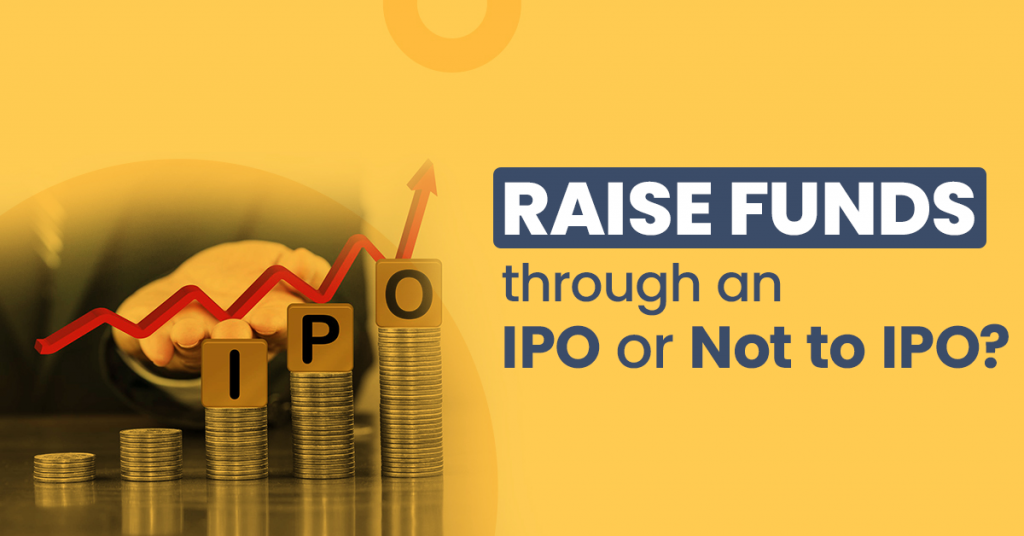
How Companies Make Money from IPOs
Introduction to IPOs
In the dynamic realm of finance, Initial Public Offerings (IPOs) serve as crucial milestones for companies seeking to expand their horizons and access capital markets. Essentially, an IPO marks the transition of a privately held company into a publicly traded entity, allowing it to offer shares to the general public for the first time. This transformative event is often perceived as a strategic move that can significantly impact a company’s financial landscape and market presence.
Process of IPO
Preparing for an IPO
Before embarking on the IPO journey, companies undergo meticulous preparation to ensure readiness for the public market scrutiny. This phase involves financial audits, compliance assessments, and strategic planning to align with regulatory requirements and investor expectations.
Going public: The IPO process
The IPO process entails several stages, including selecting underwriters, filing registration statements with regulatory bodies like the Securities and Exchange Commission (SEC), pricing the offering, and ultimately, debuting on stock exchanges. This phase demands meticulous coordination among various stakeholders, including company executives, legal advisors, and investment banks.
How do Companies Make Money from IPOs?
Initial Public Offering (IPO) as a Fundraising Method
One of the primary objectives of conducting an IPO is to raise capital. By offering shares to the public, companies can generate substantial funds, which can be utilized for diverse purposes such as expanding operations, investing in research and development, or paying off debts. The capital raised through IPOs serves as a vital resource for fueling growth initiatives and strategic expansion plans.
Mechanisms of Companies Make Money from IPOs
Companies typically raise funds through IPOs by issuing new shares or offering existing shares held by early investors and insiders. The proceeds from the sale of these shares contribute to the company’s capital base, enabling it to strengthen its financial position and pursue value-creating opportunities.
Reasons for Companies to Choose IPOs
Access to Capital
IPOs provide companies with access to a broader pool of investors, including institutional investors, retail investors, and mutual funds. This diversified investor base enhances the company’s ability to raise significant capital, thereby facilitating ambitious growth strategies and capital-intensive projects.
Enhancing Company’s Public Image
Going public through an IPO can enhance a company’s public image and credibility in the market. The increased visibility and transparency associated with being a publicly traded entity can instill confidence among customers, suppliers, and other stakeholders, thereby fostering trust and goodwill.
Liquidity for Stakeholders
For existing shareholders and early investors, IPOs offer an opportunity to monetize their investments and realize substantial returns. By converting illiquid assets into tradable securities, IPOs provide liquidity and exit options for stakeholders, thereby unlocking value and diversifying investment portfolios.
Impact on Small and Medium Enterprises (SMEs)
Opportunities for SMEs to Raise Funds
While IPOs are often associated with large corporations, they also present lucrative opportunities for Small and Medium Enterprises (SMEs) to raise capital and fuel growth. By tapping into the public markets, SMEs can access a broader investor base and secure financing for expansion initiatives, innovation projects, and market expansion endeavors.
Challenges and Considerations for SMEs
Despite the potential benefits, SMEs contemplating IPOs must navigate various challenges and considerations, including regulatory compliance costs, market volatility, and investor expectations. Additionally, SMEs must assess their readiness for the rigors of public scrutiny and governance requirements associated with being a publicly traded company.
Case Studies
Successful IPO Stories
Numerous companies have achieved remarkable success through IPOs, catapulting them into the ranks of industry leaders and market darlings. From tech unicorns to traditional stalwarts, IPO success stories abound, showcasing the transformative power of going public and unlocking shareholder value.
Lessons Learned from IPO Experiences
Amidst the triumphs lie valuable lessons learned from IPO experiences gone awry. Instances of IPO failures, botched launches, and post-IPO struggles underscore the importance of thorough preparation, strategic planning, and prudent decision-making in the IPO journey.
Market Volatility
Risks Associated with IPOs
IPOs are inherently susceptible to market volatility, as evidenced by fluctuations in stock prices during the initial trading period. Factors such as macroeconomic conditions, industry trends, and investor sentiment can exert significant influence on the performance of newly public companies, leading to price fluctuations and investor uncertainty.
Regulatory Compliance
Navigating the complex regulatory landscape is a critical aspect of the IPO process, with companies required to comply with stringent reporting requirements, disclosure obligations, and governance standards. Failure to adhere to regulatory guidelines can result in legal repercussions, reputational damage, and adverse consequences for shareholders.
Future Trends in IPOs
Emerging Trends in IPOs
Looking ahead, the IPO landscape is poised for continued evolution, driven by emerging trends such as SPACs (Special Purpose Acquisition Companies), direct listings, and dual-class share structures. These alternative paths to the public markets offer companies greater flexibility and customization options in accessing capital and going public.
Predictions for the Future of IPOs
As technology reshapes the financial services industry, the future of IPOs holds promise for innovation, efficiency, and democratization of access to capital. With advancements in blockchain technology, decentralized finance (DeFi), and digital securities, IPOs are likely to undergo transformational changes, unlocking new opportunities for companies and investors alike.
Conclusion
In conclusion, IPOs represent a pivotal milestone in the corporate lifecycle, enabling companies to raise capital, enhance visibility, and unlock shareholder value.The process of raising funds for SMEs through Initial Public Offerings (IPOs) represents a strategic pathway for unlocking growth, accessing capital, and realizing long-term value creation. By going public, SMEs can tap into the vast pool of capital available in the public markets, enhance visibility, and attract institutional and retail investors. However, embarking on an IPO journey is complex and demands careful planning, rigorous due diligence, and adherence to regulatory requirements.
SMEs must thoroughly assess their readiness for an IPO, engage experienced intermediaries, and navigate the IPO process with diligence and transparency. Post-IPO, it becomes imperative for SMEs to focus on delivering strong financial performance, upholding corporate governance standards, and fostering investor confidence through effective communication and transparency.
Ultimately, the decision to pursue an IPO should align with the strategic objectives and growth aspirations of the SME. With proper planning, execution, and governance practices in place, SMEs can leverage IPOs as a catalyst for sustainable growth, value creation, and market leadership.
Once the IPO journey is initiated from SMEIPOINDIA, SMEs embark on a transformative path towards raising funds, driving growth, and realizing their full potential in the dynamic business landscape.


